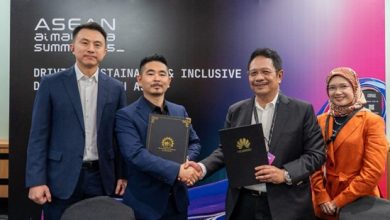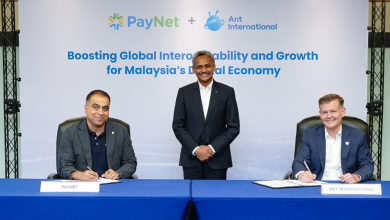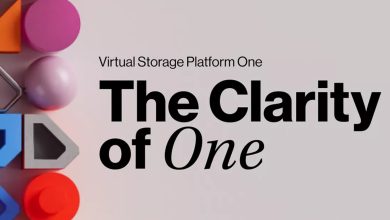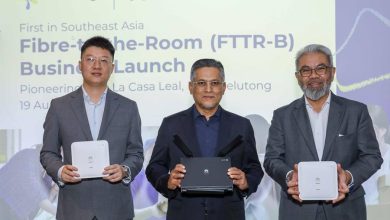Why Malaysia’s High-Stakes and Highly Strategic Modernisation Must Blend Legacy Systems with Modern Innovation
Turning Legacy Platforms into Catalysts of Digital Transformation with Rocket Software

Malaysia is at a crossroads when it comes to digital transformation.
While it integrates Artificial Intelligence (AI) to businesses and the Malaysian way of life in general, it needs to strike the perfect balance between going all-in on an AI-powered future and leaning on its digital backbone: legacy systems. But therein lies a crucial complication. Most organisations running on legacy systems are in critical industries like banking, and that only makes modernisation “high-stakes and highly strategic,” according to Praveen Kumar, Vice President for Asia Pacific at Rocket Software.
From banks and insurers to manufacturers, many of Malaysia’s core businesses run on legacy systems, including quite a few that have been operational for decades. These systems aren’t mere digital relics because they actually are mission-critical platforms that contain the institutional memory of entire industries. But with AI projected to inject up to USD $115 billion into Malaysia’s productivity by 2030, the pressure to innovate and integrate AI into the world of work has become a necessity.
But there are obviously risks—and downtime is one of them. According to Kumar, in fact, downtime “is not an option for industries where 24/7 availability is critical and customers expect seamless experiences.” This is why he describes the race to AI as “high-stakes and highly strategic” as downtime is a certified business killer, along with stale, inconsistent service that doesn’t evolve and involve all relevant demographics.
This is where past, present, and future converge for Malaysia.

“Malaysian enterprises serve a wide demographic, from digital-first audiences to older generations that are still reliant on traditional channels. Their modernisation efforts must be inclusive, ensuring both types of users are supported as services evolve,” Kumar told Data & Storage Asia. “The goal is not to abandon the past, but to build on it. By evolving their core systems rather than replacing them, Malaysian organisations are unlocking AI’s potential in a way that’s secure and scalable.”
Indeed, Malaysian businesses need to satisfy to two distinct audiences: digital-first consumers who expect slick, AI-driven services, and traditional users who still rely on analogue channels. Striking a balance between both, therefore, is not just a tech challenge but also a cultural imperative. And this, according to Kumar, is why business leaders need to come up with a “balanced strategy of preserving what works and modernising where needed” in order to scale AI more confidently and sustainably.
Secure Innovation Over Speed Is a Modernisation Imperative
In Malaysia today, IT leaders and business decision-makers have realised that modernisation is no longer just about chasing the newest platforms and investing in the newest software; it’s also about—sustainable, secure innovation. Data from Gartner supports this new digital reality where businesses have pivoted away from traditional infrastructure investments and are now focusing on:
- Cybersecurity: With regulatory frameworks like the updated Personal Data Protection Act (PDPA) taking effect, breach accountability has become top-of-mind.
- Data Analytics and AI: CIOs are doubling down on extracting actionable insights from existing data, rather than simply collecting more of it.
- Operational Continuity: Ensuring modernisation doesn’t disrupt services, particularly for industries reliant on constant uptime.
“Today’s IT leaders must innovate at speed while navigating increasing risks and regulations. In Malaysia, this balancing act is even more pronounced with the updated Personal Data Protection Act (PDPA) taking effect this year,” Kumar pointed out. “These changes demand a stronger data governance framework and breach accountability. Raising the bar for how organisations manage and modernise their systems.”
Enterprise tech leader Rocket Software recognises these evolving business imperatives and has positioned itself firmly at the intersection of these priorities, offering tools that modernise internal platforms while “ensuring their platforms evolve to meet today’s demands without sacrificing performance or compliance” and “simplifying how systems and data are accessed, secured, and managed” so teams can “reduce risk, streamline operations, and ensure that governance is built into every layer of the IT environment.”
Data Readiness and the Pathway to AI Success
Ultimately, the success or failure of any endeavour involving AI depends a lot on one pivotal factor: data readiness. And yet it appears many Malaysian businesses aren’t ready in this regard and are, in fact, missing out big time because of unused or underutilised data.

“There is an untapped value locked inside most systems—whether it is customer records, inventory data, or transactional histories. Yet, only around 28% of organisations are fully leveraging that data in their AI and analytics strategies,” rued Kumar. “Integration remains as one of the biggest barriers. Core systems weren’t built with today’s data architecture in mind. Data siloes and growing governance requirements only add to that complexity.”
That complexity makes perfect sense. Core systems weren’t architected with modern data environments in mind, and that’s why information remains siloed and integration continues to be cumbersome. More stringent governance requirements aren’t helping either. Unfortunately, in hybrid cloud ecosystems—where on-prem transactional platforms co-exist with cloud-native apps—real-time access to unified data is critical and even the difference between success and failure. But Rocket Software’s approach focuses on bridging these gaps through secure connectivity, enabling AI models to interact with accurate, accessible, and governed data streams.
“At Rocket Software, we help enterprises overcome these challenges by connecting critical systems with cloud and distributed environments. Our solutions help make their data available securely and in real-time to support AI initiatives,” Kumar explained on how Rocket Software solves these data-related challenges. “Preparing for AI success means having the right data, in the right place, at the right time. Addressing integration challenges is key, and organisations that get this right will be better positioned to turn data into real insight.”
A Heritage-Informed Digital Future Beckons
As Malaysia advances toward its AI-powered future, the most forward-thinking enterprises will be those that view legacy systems not as obstacles—but as foundations. In this context, modernisation isn’t about replacing yesterday’s systems with tomorrow’s promises. It’s about empowering those systems to scale innovation securely, inclusively, and intelligently.
And if Rocket Software’s insights are any indication, Malaysian businesses are doing exactly that—turning history into horsepower for the digital economy.




